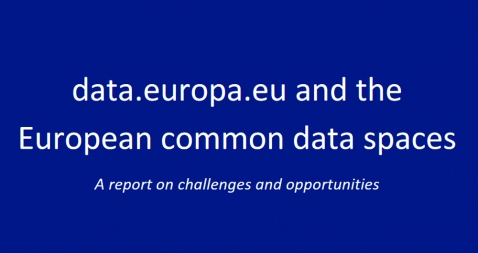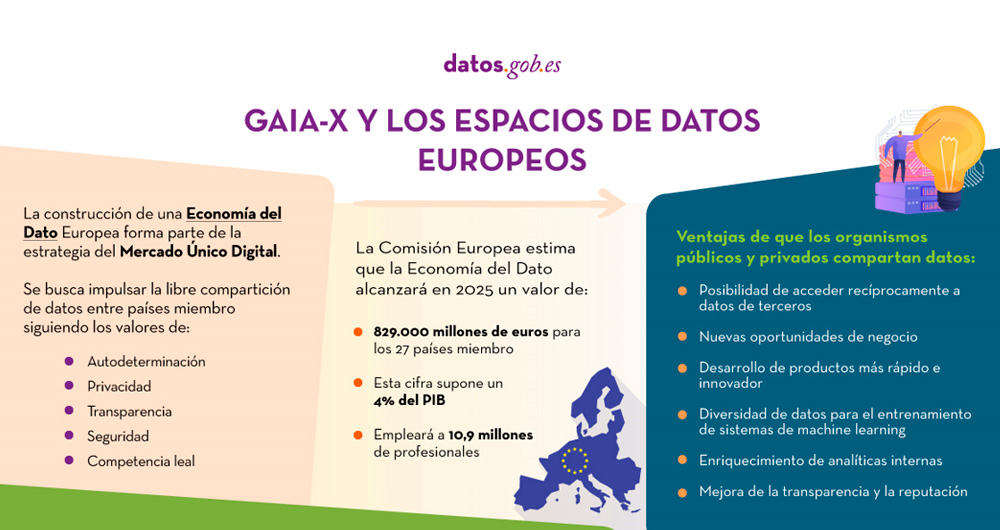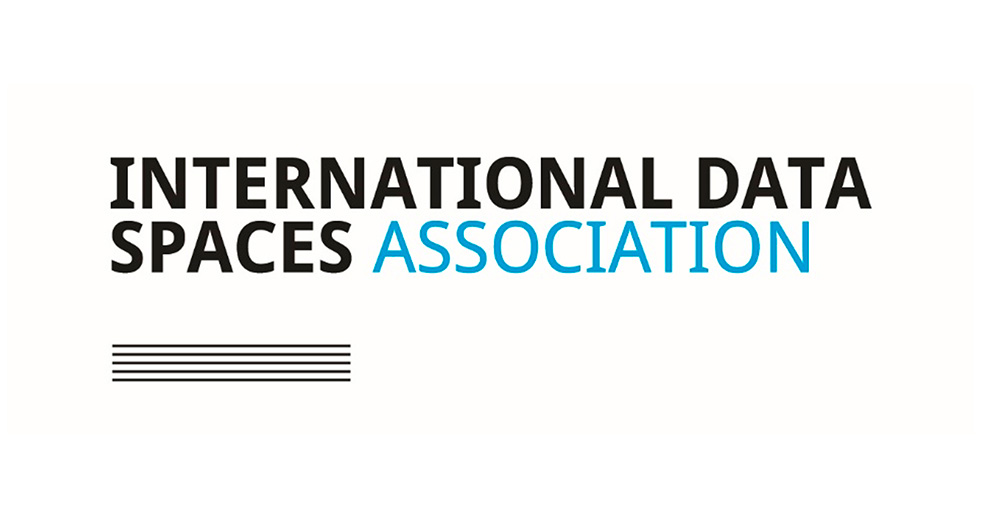The role of the European Data Portal within the EU data spaces initiative
Fecha de la noticia: 10-06-2022

What role can data portals play in the context of the data spaces identified in the European Data Strategy? This is the question posed by the European Commission, through its open data initiative 'data.europa.eu', and which serves as the starting point for the report "data.europa.eu and the European common data spaces".
Data.europa.eu and the Common European Data Spaces: Report Methodology
"data.europa.eu and the European common data spaces" is the first of two reports analysing the role that data.europa.eu could play in the context of the emerging European Union common data spaces envisaged in the European Data Strategy. It should be noted that part of this strategy is the development of interoperable common European data spaces across different sectors, an initiative that is still in the process of consolidation.
The objective of the report is twofold. On the one hand, it seeks to identify open data holders who are involved in ongoing implementations of data spaces. On the other hand, it offers a reflection on the role that open data portals could play in these implementations, especially the European portal.
To carry out the development of this first report, its authors (Óscar Corcho and Elena Simperl), conducted an in-depth analysis of the existing official documentation on the European Data Strategy, as well as reviewing online resources and use cases of initiatives such as IDSA, Gaia-X or Open DEI.
Simultaneously, they conducted interviews with developers of data architectures and data spaces. As full implementations do not yet exist, the analysis was based on use cases, work in progress and roadmaps, rather than on operational data spaces.
Main findings of the report
Although this is only the first of two studies, the authors have been able to highlight several far-reaching conclusions:
- Open data is commonly mentioned alongside private and personal data as a type of data source. However, open data owners are often not involved in initiatives to develop reference data space architectures or their implementations. This situation needs to change by ensuring their involvement.
- Open data holders have extensive experience in data publishing, metadata management, quality indicators, dataset discovery and federation, as well as in technologies and standards such as DCAT. However, there is very little transfer of knowledge and technologies from the open data community to the data space community.
- The use of data from multiple sources requires interoperability at various levels. The need for data intermediaries acting as neutral brokers to ensure interoperability is an under-explored issue in the context of data spaces. Public administrations, building on their experience in data publishing, are best placed to take on this role.
The second report - to be published once the data space implementations are available in 2023 - will explore three data space scenarios, with data.europa.eu as data holder or data broker. In addition, it will analyse in detail the challenges and opportunities for the European portal in the context of these developments.
A webinar to further explore the role of the European Data Portal in data spaces
The concept of "data space" arises from the need to provide as much openness of information as possible, while recognising that some data should not be completely open. As a result of this dichotomy, the idea of creating a community of participants who share and use data on the basis of pre-established rules, guaranteeing an environment of sovereignty and trust, was born.
Ideas such as these prompted a webinar on open data and how it fits into broader data space ecosystems to be held on 4 May in the framework of the data.europa.academy. During this session in English, which you can access via this link, some key points of the report's analysis were explored in more detail. In addition to the recording of the session, you can view and download for free the PDF presentation that was used as a guide for the webinar.
Next steps
Ultimately, data spaces belong to an emerging field that still has some biases and limitations. Open government data sources, portals and their practitioners are not as well represented as they could be, even in sectors where they play a key role, such as mobility or smart cities. This needs to change.
The future of the research conducted in this report is to await the publication of the aforementioned second report, which will become effective once more developed European common data spaces are available and the work on reference resources has been completed by IDSA and Gaia-X. These forthcoming actions will allow the formulation of more specific recommendations that can be based on the characteristics of the actual data spaces in operation.














